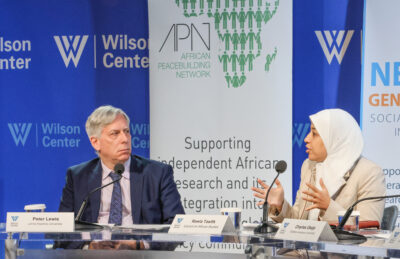The website Muslim Voices has a series of podcasts about Islam, and recently posted an interview with Professor Heather Akou, a practicing Muslim who wears a headcovering and is an expert in African and Muslim dress. Like the exchange between Rana and Robin Yassin-Kassab, Akou offers a different perspective on what veiling can mean:
I wish that more Americans knew that covering the body and being modest actually has a much longer history, and is common not just to Islam but also to Judaism and Christianity and many other religions around the world…and that’s really where the practice started. The idea was not to oppress women.
In fact, many Muslim women see it as being very liberating, that other people are not looking at them, thinking, you know, “Oh, what do I think about her haircut, or her makeup?” You’re really, you’re covering your body, and of course you can display it when you’re at home—it’s not that you have no body and you have no beauty—but outside the home you really, you don’t want to be an object of harassment. You want to have people interact with you based on your ideas and your abilities, and not so much what you look like.
Listen to the full podcast here. These “Voices and Visions” podcasts are made possible in part through a grant from the SSRC’s Academia in the Public Sphere grants program.












